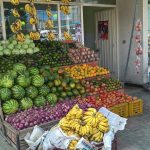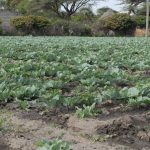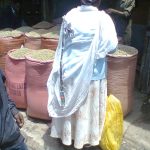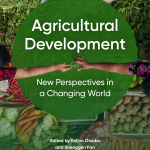This paper draws on a novel large-scale dataset from rural Ethiopia to analyze the intergenerational transmission of male dominance in decision-making. More specifically, I analyze whether male dominance in decision-making, male engagement in household tasks and intimate partner violence in currently formed marital households are correlated with the patterns of male dominance reported in the […]
Food consumption and food security during the COVID-19 pandemic in Addis Ababa
International humanitarian organizations have expressed substantial concern about the potential for increases in food insecurity resulting from the COVID‐19 pandemic. We use a unique panel survey of a representative sample households in Addis Ababa to study both food security and food consumption during the pandemic. In contrast to some other countries in the region, Ethiopia […]
Efficiency and profits of emerging medium-scale farms in Africa: Evidence from Ethiopia’s commercial horticultural sector
We study production practices of larger and more capital-intensive farmers (“horti-preneurs”) in horticultural commercial clusters in the central Rift Valley of Ethiopia. Attracted by profitable vegetable markets, more educated farmers rent in land for vegetable production from a large number of smallholders to meet rapidly growing urban vegetable demand. We find that these hortipreneurs obtain […]
Trade, value chains, and rent distribution with foreign exchange controls: Coffee exports in Ethiopia
Exchange rate policies can have important implications on incentives for export agriculture. However, their effects are often not well understood. We study the issue of foreign exchange controls and pricing in the value chain for Ethiopia's coffee—its most important export crop. Relying on unique pricing and cost data, we find that coffee exporters are willing […]
Agricultural development: New perspectives in a changing world
Agricultural Development: New Perspectives in a Changing World is the first comprehensive exploration of key emerging issues facing developing-country agriculture today, from rapid urbanization to rural transformation to climate change. In this four-part volume, top experts offer the latest research in the field of agricultural development. Using new lenses to examine today’s biggest challenges, contributors […]
- « Previous Page
- 1
- …
- 55
- 56
- 57
- 58
- 59
- …
- 123
- Next Page »




